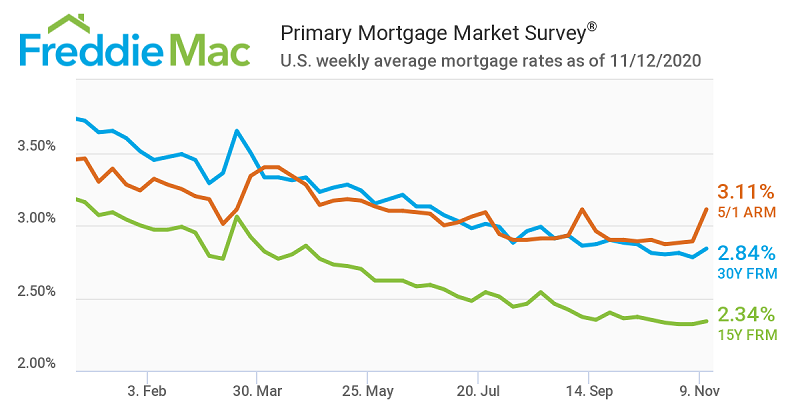Builder confidence soars in October—what that means for you
Builder confidence in the single family–home market hit an all-time high of 85 this October. That’s an increase from September’s 83 and an entirely different world from April’s confidence index of 30. What effects, if any, does this soaring confidence have for you, and what can you expect going forward? Let’s find out.
High traffic + low interest rates = soaring confidence
COVID-19 is the stage on which these builder confidence intervals have played throughout 2020. Prospective buyers were already showing interest in the suburbs prior to the pandemic. But there’s been a pronounced commitment to getting away from urban centers since the pandemic set in. NAHB chief economist Robert Dietz says that the success of the housing market in 2020 is “supported by increased buyer interest in the suburbs, exurbs, and small towns.”
This high traffic has been spurred on by historically low interest rates. Throughout 2020, we saw record-shattering rate plummets, seemingly every week. And while mortgage rates are showing modest increases, they’re still historically low.
Source: Freddie Mac, Jan 1–Nov 12
This high traffic–low interest rate environment opens a ton of opportunity for builders. That’s especially true because of prospective buyers’ desire to move out of the city. However, there are obstacles to builders taking advantage of this environment.
Builders still have hurdles to increasing inventory
Though nationwide housing demand is high, inventories are still at historic lows. According to Dietz, “NAHB analysis published [mid-October] showed that new single-family home sales are outpacing starts by a historic margin. Bridging this gap will require either a gain in construction volume or reductions in available inventory, which is already at a historic low in terms of month’s supply” (emphasis added).
There are several reasons why inventory remains so low. Skyrocketing lumber prices, labor shortages, and constant new-home sales make it difficult for builders to keep pace. COVID-19 quarantines have also undoubtedly played a role in the overall lag of starts.
While these hurdles may be challenging to overcome, builders can still focus on what they can control. For example, building near transportation and providing more space can help meet the expectations of prospective buyers. Additionally, providing prospects with the flexibility to convert a room into a home office will likely be crucial going forward.
A structural warranty can give you and your buyers even more confidence
Confidence in home building is a bright spot for a beat-up economy. You can help prospective buyers build confidence by protecting your homes with a structural warranty from 2-10 Home Buyers Warranty (2-10 HBW).
In addition to space, home offices, and easy transport, buyers want affordability in their homes as much as possible. A structural warranty is a powerful way to contribute to that affordability. That’s because an insurance-backed structural warranty takes the financial burden of structural defects off the shoulders of you and your buyers.
The average structural defect costs $70,000 to address (not to mention the time it takes). With a structural warranty from 2-10 HBW, neither you nor your buyers bear that burden for qualified structural defects. 2-10 HBW inspects the defect, dispatches the contractors to fix it, and pays the costs.
A structural warranty also gives you confidence in your future. It reduces long-tail liabilities related to structural defects. Instead of worrying about what you’d do if something went wrong, a structural warranty lets you continue doing what you do best—building quality homes—with confidence.
Finally, a structural warranty from 2-10 HBW includes binding arbitration supported by the Supreme Court. That means that if you ever had a dispute, you and your buyer would settle it out of court. That can be a huge time and money saver for you.
Learn how you can protect your business and add valuable selling points to your new builds with a 2-10 HBW structural warranty.




